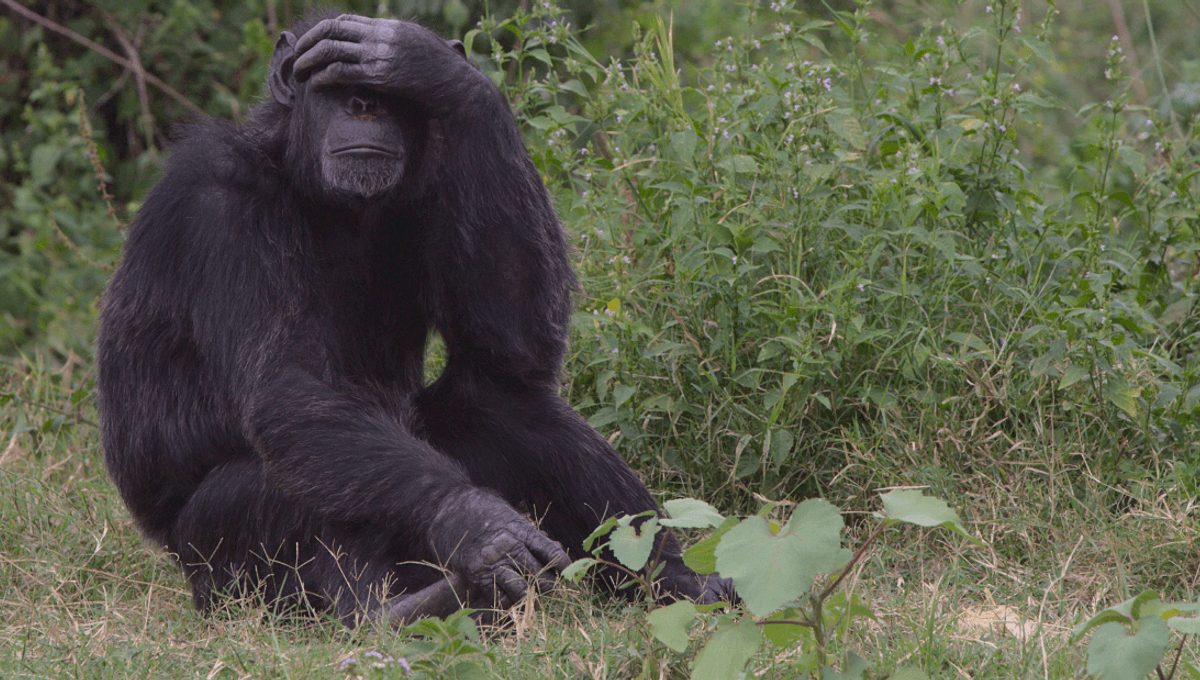
Embarrassment is a complex emotional state that most humans are all too familiar with, but what about our wild relatives? Do animals get embarrassed? Research has looked into incidents of blundering apes and found that embarrassment may play a role in appeasing awkward social situations, eliciting behaviors like avoiding eye contact and blushing.
Embarrassment is well documented among humans who think they’ve violated some kind of social norm, or stacked it slipping on a banana skin. You can spot an embarrassed human a mile off, but establishing the emotional state in animals is more difficult.
Mark Bekoff wrote in the journal BioScience that an observation by world-famous primatologist Jane Goodall could be interpreted as embarrassment on the part of a chimp, as she watched a juvenile named Freud land on his face after swinging on a branch. The young chimp immediately looked up to his icon, his uncle Figan, as if to check if anyone had seen him fall. A relatable response for anyone who’s ever tripped up in front of a group of teenagers.
A similar reaction was seen in a male rhesus monkey who stacked it after copulating, falling into a ditch. Again, the animal looked around as if to check if anyone had witnessed the tumble. Returning to a confident stride indicated to the researchers that he felt he’d gotten away with it, but the fact there’s a publication detailing the incident would indicate otherwise.
For embarrassment to have evolved across different animal groups, something known as convergent evolution, it would have to serve some kind of purpose that improves an animal’s fitness within its environment. In a 2000 paper, authors Dacher Keltner and Cameron Anderson suggest it may serve an appeasement function that reconciles social relations when things have gone awry.
You might hate feeling embarrassed, but making a fool of yourself can elicit laughter in others in a way that’ll get you off the hook for messing up in the first place. Some of Keltner’s earlier research uncovered appeasement behaviors seen in humans and non-human primates, including gaze aversion and reddening of the skin.
Their work builds on Charles Darwin’s studies of emotion in the animal kingdom, and even the great naturalist wasn’t above getting a little academic egg on his face.
“Although he may have taken a wrong turn in ignoring the functions of embarrassment, committing what in hindsight seems like an intellectual faux pas, he provided conceptual tools for other researchers to refine his many other interesting observations about the blush and self-conscious emotions, to right his wrongs in illuminating ways.” They wrote.
“And of course, in saving face for Darwin, we like him all the better.”
Source Link: Do Animals Get Embarrassed?